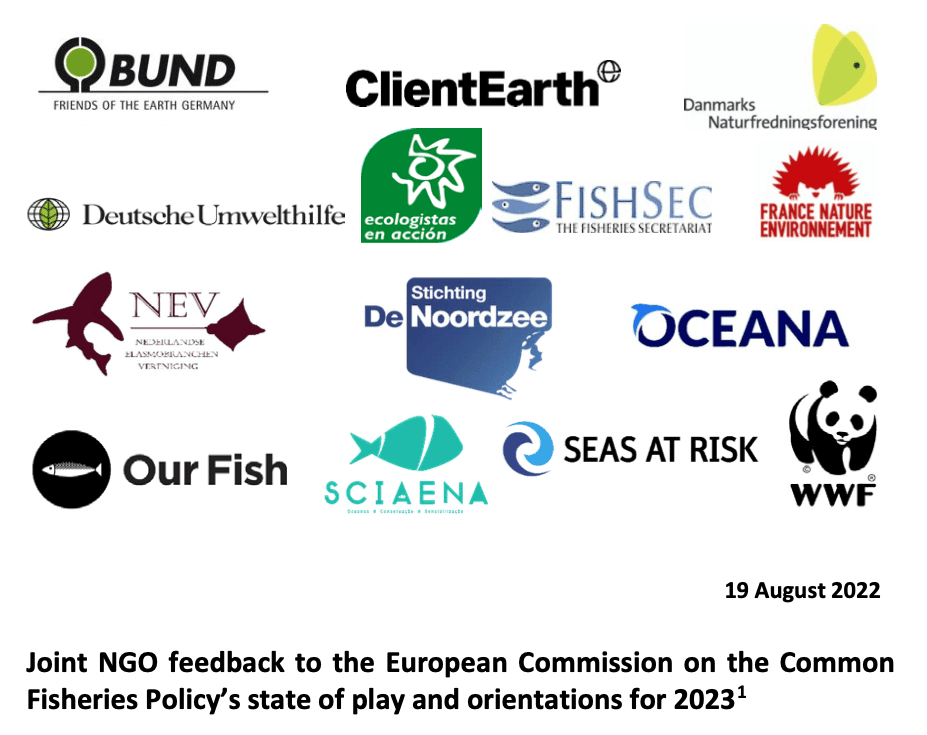On behalf of Bund für Umwelt und Naturschutz Deutschland e.V. (BUND), ClientEarth, Danmarks Naturfredningsforening, Deutsche Umwelthilfe, Ecologistas en Acción, The Fisheries Secretariat, France Nature Environnement, De Nederlandse Elasmobranchen Vereniging, Stichting De Noordzee, Oceana, Our Fish, Sciaena, Seas At Risk, and WWF, we hereby respond to the European Commission’s public consultation on the progress towards more sustainable fisheries, the state of fish stocks and the setting of fishing opportunities.2
The current Common Fisheries Policy (CFP) Basic Regulation entered into force on 1 January 2014. It contains ambitious objectives and concrete timelines to put the European Union at the forefront of global fisheries management and make European fisheries economically, socially, and environmentally sustainable. However, although some progress has been made, in particular in Northeast Atlantic waters, the EU is still far from reaching its overdue legal obligation to harvest all stocks sustainably by 2020.
Despite the significant increase in fleet profitability and the reduction in overfishing brought about by the CFP in the last decade, the most recent Scientific, Technical and Economic Committee for Fisheries (STECF) report on the monitoring of the CFP performance3 confirms that “many stocks remain overfished and/or outside safe biological limits and the objective of the CFP to ensure that all stocks are fished at or below FMSY in 2020 has not been achieved”.4 Specifically, the Baltic Sea fish populations are not improving, the Mediterranean and Black Seas remain in a dire state with 85% of assessed stocks overfished, whereas the proportion of Northeast Atlantic Maximum Sustainable Yield (MSY) assessed fish stocks subject to overfishing has decreased from around 75% in the mid-2000s to 28% more recently.

